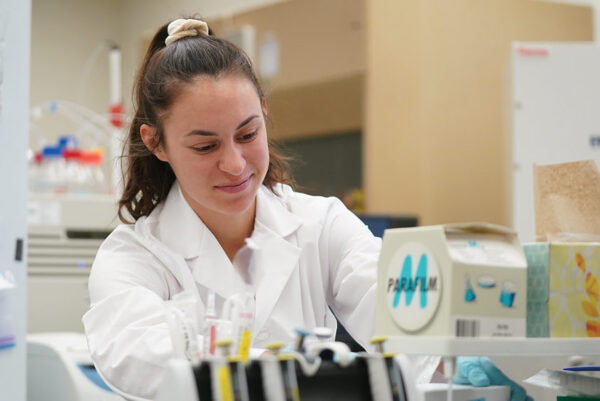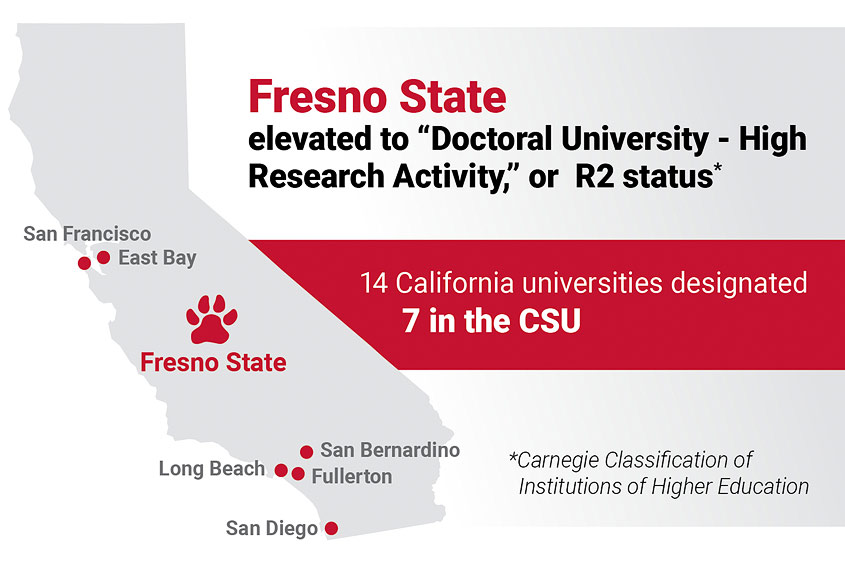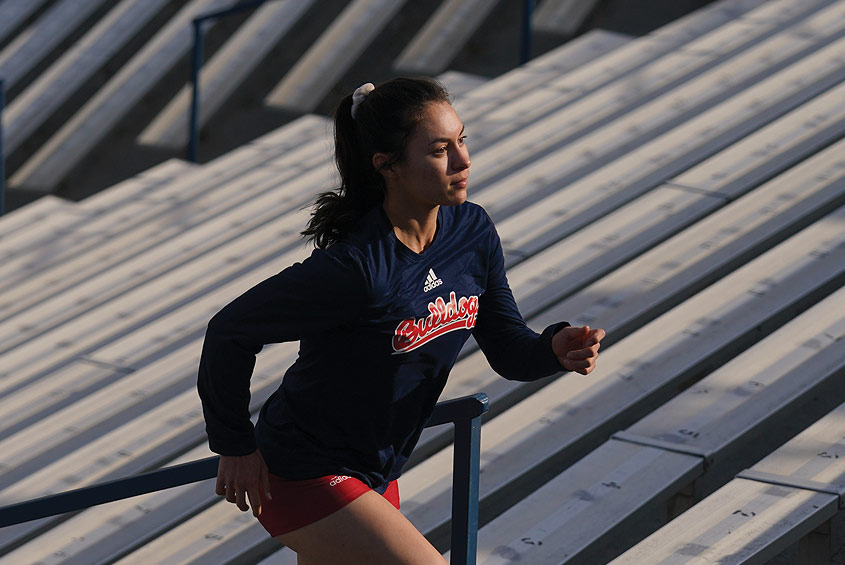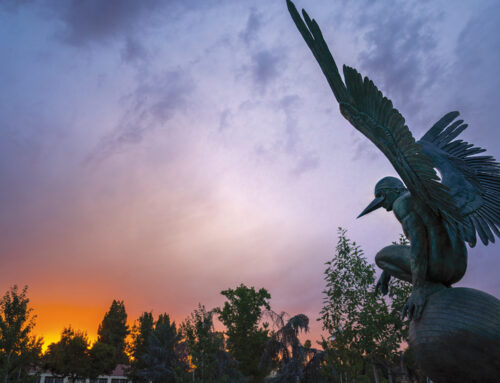Good Chemistry
Growing research activity leads to major boost in Fresno State’s classification
By Chuck Radke

Sophie Jimenez, a chemistry student and member of the track and field team, is one of many Fresno State students whose growing research efforts have helped Fresno State earn Carnegie classification as a “Doctoral University – High-Research Activity.”
It is said that a journey of a thousand miles begins with a single step. For Fresno State senior track athlete and chemistry student Sophie Jiménez, they have been fast steps, indeed.
Jiménez, who became a Bulldogs scholar-athlete, has been running full-speed since she was in the fourth grade.
“I was always fast,” she says. “People expected me to win.”
More often than not, she did, running away from the track and field competition at Central High School right into a scholarship at Fresno State, where she posted a personal best 2:12:84 in her specialty event, the 800 meters.
A knee injury and some time away from competition gave Jiménez the chance to reset and rediscover her first love — science — which she inherited from her father. She has been cultivating that passion in Professor Masaki Uchida’s lab since fall 2020. Uchida was hesitant to take on a research student amid a global pandemic, but upon interviewing Jiménez, he couldn’t turn her away.
“I went through a presentation and Sophie had brilliant questions,” he says.
Jiménez will go straight from her undergraduate work into a doctoral chemistry program and has narrowed her choices to UC Merced and UC Santa Cruz.
Uchida has been impressed by Jiménez’s grasp of protein cages, which function as chambers for chemical reactions and delivery vehicles for therapeutics — which are important in the study of disease prevalence, vaccine production and immune response. Jimenez’s own research involves “molecular Legos,” cage-like proteins that build upon each other. Getting those proteins to assemble in an ordered array, then improving upon their structure, are primary goals of Jiménez’s work.
“If we can figure out the structure, we can improve upon it,” she says.
Uchida’s lab, and others like it at Fresno State, has contributed to a significant growth in research activity in recent years. In February, Fresno State was elevated to “Doctoral University-High Research Activity,” or R2 status, according to the most recent Carnegie Classification of Institutions of Higher Education. Only 14 California universities share this designation, including seven universities in the California State University system.
“The R2 designation recognizes the hard work of our faculty, staff and administrators and their grant writing, submission and research award activity on our campus,” says Dr. Joy Goto, interim dean of the Division of Research and Graduate Studies at Fresno State. “Our research activities also represent many grants and contracts that advance our scholarly and creative work with our community, region and international collaborations.”
In addition, Fresno State earned Carnegie’s Community Engagement Classification since 2015, which recognizes the partnership between the University’s knowledge and resources with those of the public and private sectors to enrich scholarship, research and creative activity.
Only 60 universities nationwide can boast both designations, and six of those are in the CSU system.
In the 2020-21 academic year, more than 12,000 students, faculty and staff at Fresno State contributed over 1 million hours of service to the community. The milestone marked the 12th straight year the University community topped 1 million hours.

“Being one of only 60 universities across the nation classified as both a Doctoral University – High Research Activity and a Community Engaged university recognizes the breadth of our academic, scholarship and service accomplishments,” says Chris Fiorentino, director of the Jan and Bud Richter Center for Community Engagement and Service Learning at Fresno State.
Jiménez has found all of this and more at Fresno State.
“I came wanting to do all the stuff I saw on the science channels,” she says. “Now, I want to use my research to help my community.”
Her plan is to return to Fresno after her doctoral program and teach at the university level, just like her mentor and many others who guided her along the way.
“Fresno State has been very supportive,” she says. “And Masaki has been very patient.”
Jiménez also credited the Louis Stokes Alliance for Minority Participation and the Research Training Initiative for Scientific Enhancement for removing barriers and helping facilitate her success in her scientific endeavors.
Thanks to these programs, along with Fresno State’s other resources and the love of family and community, Jiménez’s research journey, like her running career, is on the fast-track to success.






